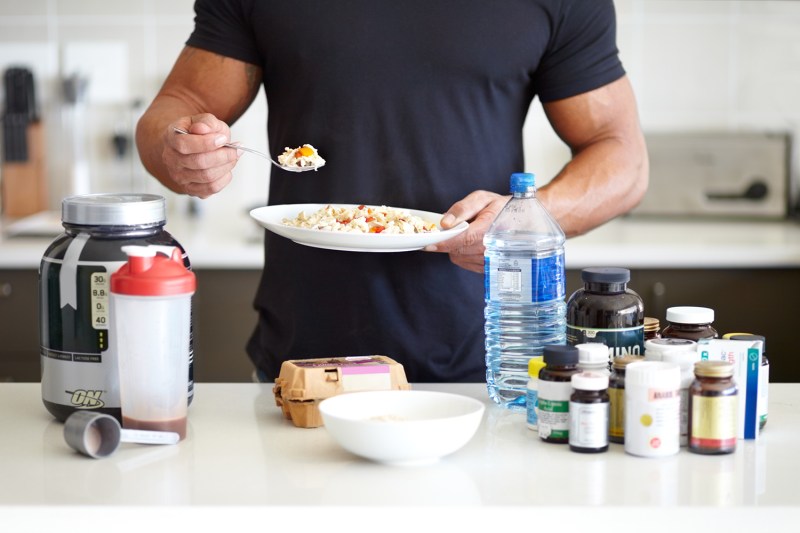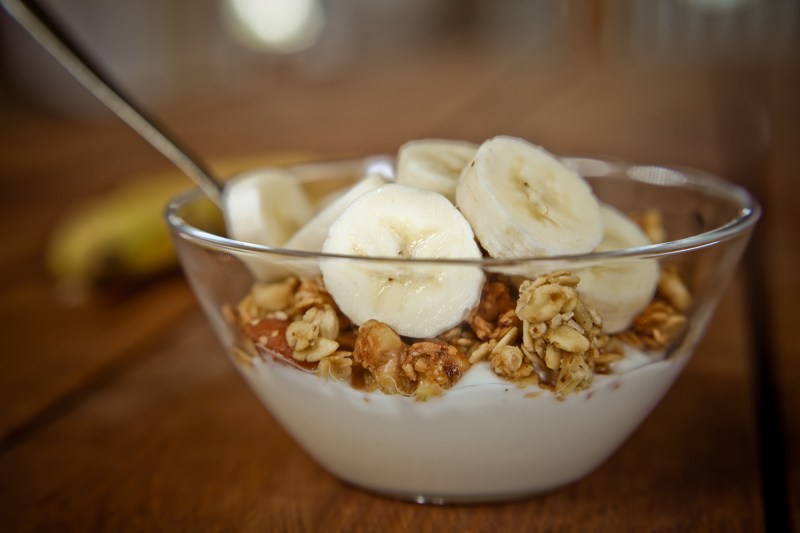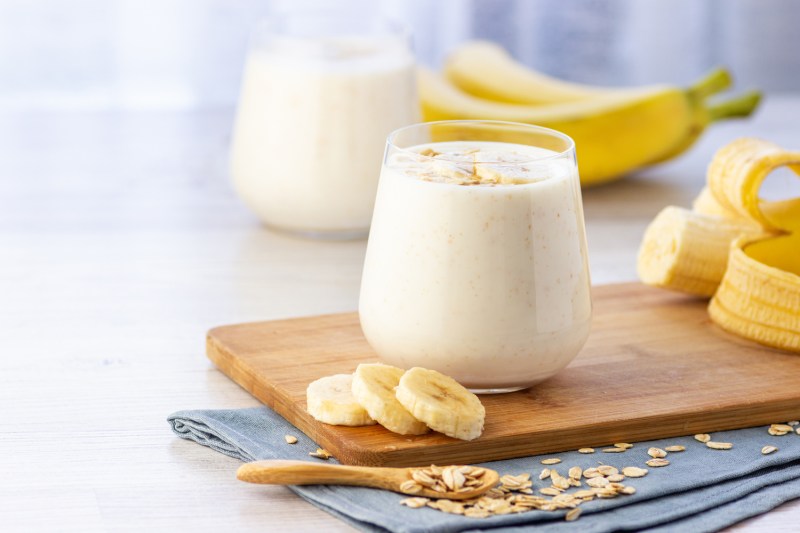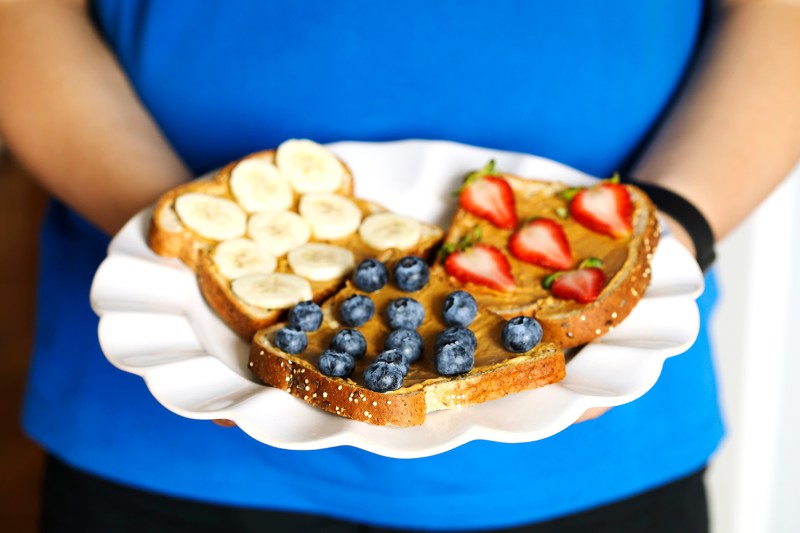
As in most things in fitness, there is never going to be a one-size-fits-all situation. Whether that’s diet, exercise, routines, supplements, habits, the list goes on, just because something works for someone else does not mean it will work for you. A pretty commonly asked question on that fact is whether you should eat a pre-workout meal.
First thing, you need to establish which group you fall into. Do you feel fully optimized during your session, either with or without food? Some people feel less sluggish on an empty stomach and love to recover with a feast. Others feel lethargic and struggle throughout without proper fuel. If you’re the latter, this article is for you. If you aren’t sure, try both for a couple of weeks and compare your training performance.
Eating right before a workout may help you perform at your best. The right foods can give you the strength to crush a cardio workout or maximize a strength-training session.
Fueling your body with solid pre-workout meals is the best way to ensure you’re making the most of your time in the gym. Choosing the right foods can make all the difference in the world in maximizing your energy, increasing calorie and fat-burning potential, and helping you build muscle.
For the casual gym-goer, you can probably get away with snacking on a protein bar before your workout. But if your focus is making gains (both strength and size), what you eat before a hard strength training session matters. So, if you want to improve your performance in the gym, the prep starts in the kitchen.
When to eat your pre-workout meal

You should eat long enough before a workout that your body has time to digest your meal completely. Consume complex carbs about 90 minutes before your workout and protein about 60 minutes before your workout. Complex carbs, like sweet potatoes or brown rice, will break down slower, providing lasting energy throughout your workout. It’s a good idea to avoid fats for about an hour before your workout.
Ideally, you should attempt to give yourself at least a half-hour between eating and exercising to allow for proper digestion, but if that’s not possible, 15 to 20 minutes can suffice. However, if you are part of the cohort that has to wake up and seemingly begin working out, then at the very least, chow down on a banana and/or a protein shake right before you work out. It’ll give your body something to burn while you’re putting in the work.
Choose the right nutrients

Every worthwhile pre-workout meal should contain a mix of nutrients to ensure your body gets the best exercise fuel. Your ideal pre-workout meal should contain some combination of carbohydrates, protein, and fat.
Carbohydrates are key when you’re planning a short, high-intensity workout. Your body takes the glucose from carbs and stores it as glycogen, mostly in your muscles and liver. During a short workout, glycogen is the main fuel for your body. Because your body has a limited store of glycogen, once it runs out, you become less productive in your exercise, and you can’t go at the same intensity. This is why some long-distance runners “carb load” for a few days before a big race, because doing that gives their bodies the maximum amount of glycogen and helps fuel a longer workout.
Protein is what helps your muscles grow and also improves your performance. Eating protein before a workout has been shown to lead to:
- An increase in muscle mass
- Better recovery after a workout
- Increased strength
- Better muscle performance
Fat is what your body burns for longer and lower-intensity workouts. Eating healthy fats as part of your pre-workout meal can also help you have a better workout.
What to eat for a pre-workout meal

If you have time for a real meal before a workout, these are your best bets. Breakfast, lunch, and dinner are just suggestions — you can eat any of these meals at any time. It’s worth noting that we give you the guidelines for each meal. Your portion sizing is up to you and your goals, training, macros, etc.
Pre-workout meal: The energy breakfast
- Whole-wheat toast, dry
- Hard-boiled eggs
- Blueberries (raspberries or blackberries)
The whole-wheat toast contains complex carbs, which give you the energy you need to run faster, lift more, and push harder. The eggs provide high-quality protein, while the natural sugar in the berries will give you some quick-burning fuel.

Pre-workout meal: Brunch fuel
- Banana
- Rolled oats
- Greek yogurt
If you’re planning on a long, hard workout, oats are the ideal fuel. It can take longer to digest, so be sure to give yourself at least an hour before you start a hike or distance run.

Pre-workout meal: The power smoothie
- Protein powder
- Bananas or berries (strawberries, blueberries, raspberries, or blackberries)
- Spinach (optional)
- Ice
The perfect, quick, and easy pre-workout meal is to whip up a smoothie in your blender. A well-formulated protein powder gives you the ingredients to build muscle. The fruit provides you with sustained energy to last the entire workout. And the spinach can help you hit your micros. The best part is they just so happen to taste delicious, too.

Pre-workout meal: Lunch then lift
- Whole-wheat toast
- Peanut butter (or another nut butter)
- Dried fruit (bananas, apricots, and cranberries)
The carbs and fat in peanut butter will help provide lasting energy, as will the complex carbs in the bread. Fruits contain natural sugars, which your body will use up first, so eat them closer to the workout.

Pre-workout meal: The energy dinner
- Turkey or grilled chicken
- Brown rice
- Apple or pear
If you work out in the afternoon or evening, your body has likely used up all the food for fuel you snacked on during the day. A high-protein meal with a healthy dose of carbs should keep you full up to and through a workout. White meats, like chicken or turkey, can do better for some, as these options can appear less filling and not make you feel weighted down when you hit the gym.

Pre-workout meal: The power supper
- Beef, grilled
- Sweet potato
- Broccoli, raw or cooked
Now, this is a power meal. If you don’t believe us, just ask Hafþór Júlíus Björnsson, aka The Mountain from HBO’s Game of Thrones. This is his preferred pre-workout meal, and he also happens to be the World’s Strongest Man, so you can trust his taste.
Meal alternatives
Here are a couple of meal alternatives that we suggest for pre-workout meals.

RSP Nutrition AminoLean Pre-Workout Powder
We suggest 20 minutes before go time to have a serving of RSP AminoLean to kick up your energy level.

Promix Vanilla Whey Protein Puff Bar
While we will always recommend real food pre-workout, sometimes you just don’t have the time. If you can’t prepare one of these meals, eat a protein bar. We suggest the Promix Vanilla Whey Protein Puff Bar — it’s delicious and nutritious.
What not to eat

The only thing worse than working out on an empty stomach is working out on a stomach that’s full of the wrong foods. If you want to avoid an uncomfortable, weak workout, avoid these foods.
While leafy greens, celery, and other fibrous vegetables are good for you, they will not serve you well before a workout. That’s because they take a long time to break down and digest, so you’ll feel them struggling to convert into energy throughout your workout. Legumes (beans, lentils, etc.) are also not recommended, as they can lead to bloating, which is the last thing you want to feel as you’re pushing up a mountain or bench pressing your max.
High-fat foods are best consumed in moderation pre-workout. Save them until after your sweat session, as they’ll help replenish your depleted muscles. This should be a given, but it needs to be said: Avoid processed foods and especially no processed sugar (candy, chips, donuts, etc.) before a workout. These simple carbs are all crash and no burn, and it’s best to avoid them entirely, but especially before a long, tough workout.



